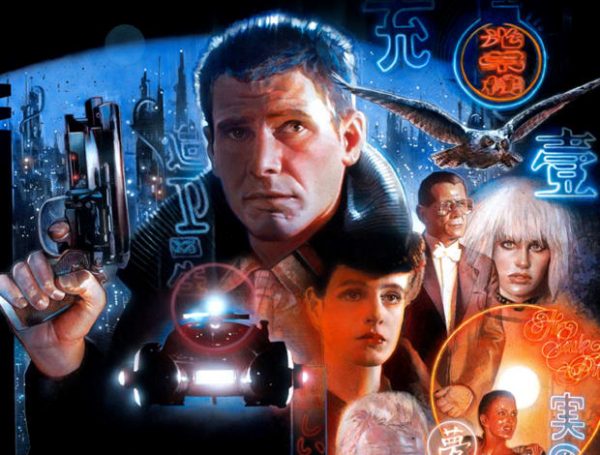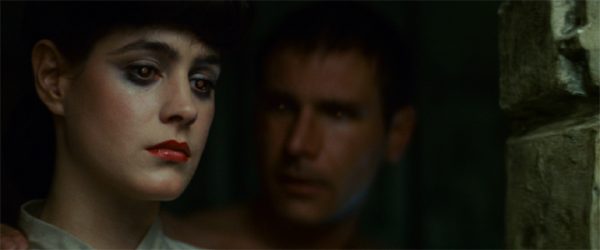Blade Runner 2049: Do Android Adventists Dream of Electric Angels?
Reviewed by Warren Nelson, 13 December 2017
Ok, I know, that’s a simply terrible knock off of the title a science fiction classic by Philip K. Dick, Do Androids Dream of Electric Sheep, written in 1968 and set in post-apocalyptic San Francisco.
It inspired the 1982 Ridley Scott classic, Blade Runner.

The movie starred Harrison Ford as Rick Deckard, a “blade runner” whose job it was to find and destroy “replicants,” biological manufactured human clones who worked as slaves on “off-world” industries. They revolted and many “immigrated” back to earth to take their place among the humans living there. The story is very elliptical and, at times, nearly impossible to follow which, of course, made it a cult hit. One of the most interesting features is that in an apocalypse-hammered world, it never seems to stop raining in Los Angeles.
In a nutshell, Deckard has a “crisis of faith” when he ultimately falls in love with Rachael, a replicant, and then has to decide to kill or love her.

Jump ahead to 2017 (2049 in the movie) and “Blade Runner 2049” and, lo and behold, it still rains constantly in LA. We don’t see Ford until late in the movie and Rachael shows in all her original glory courtesy of computer graphics. But now Ryan Gosling as Officer K, a replicant himself, discovers he may be, you guessed it, Rick and Rachael’s son. Uh oh. . .that’s a partial spoiler but I’ll stop there.
Here’s my review and then I’ll move onto the interesting part.
If you liked the original, you’ll like the sequel. There is significant violence and some nudity in both and the plot takes some effort to sort out but, in my opinion, it’s worth the effort.
Why? Because both the films very effectively raise issues that I’m not seeing discussed anywhere in the Christian press. These are issues yanked from the realms of science fiction and into our real world. Do we need to watch out for replicant robots? Not likely. . . yet. Do we need worry about robot souls? Where’s God in this rush to create superhuman, um, well, stuff?
Let’s do a quick off-the-cuff review of what exists as Artificial Intelligence (AI) right now:
- There’s Google’s DeepMind supercomputer learning to play Go. It was believed that Go, a deceptively simple but difficult-to-master board game would keep humans looking smart long after world champion chess players were defeated by IBM’s Deep Blue supercomputer. (Deep Blue was so good it’s been retired as a chess player. It is unbeatable by human players.) However, despite all human hopes to the contrary, DeepMind dominated Go. And, in the 24 hours since this article was submitted, this article on a new chess program, AlphaZero, appeared in one of my news feeds.
- Then there are autonomous cars and trucks. They are already hauling riders for pay and features, like active cruise control, collision avoidance and lane sensing are already standard features in luxury and even mid-range cars, saving thousands of lives a year.
- It’s likely you talk to your smartphone “assistant” almost as much as you talk to spouse. Machine mastery of language is here and it even includes earbuds that offer simultaneous translation.
- Facebook recently had to shut down bots who they set to talking to each. They started communicating in ways that no one had really expected. It rattled the programmers enough to shut them down.
- And, let’s not forget CRISPR. This amazing device can edit our genes. Suddenly “cloned replicants” and vastly extended human life spans aren’t all that far-fetched.
- Elon Musk of electric car and rocket fame (to name just a couple of his endeavors) thinks AI is gonna get us. And he and bunch of his like-minded technology oligarchs are putting their money where their mouths are.
- And then there’s Anthony Levandowski, a former leader of Google’s autonomous car division, who has filed the paperwork in California to start his own religion. His goal is to promote “the realization, acceptance, and worship of a Godhead based on Artificial Intelligence developed through computer hardware and software.” Is he serious? I’ll let you read the article and decide for yourself.
Here we are at the end of bunch of nearly random thoughts prompted by a film about a post-apocalyptic LA where it never stops raining. We can’t pretend, any more, that either Musk or Levandowski are nuts. These guys are looking at the heart of AI and making some very interesting moves.
What’s one to do? Good question!
So here are several questions (and there are really a bunch more so go for it) I’d love to see discussed in the comments on Facebook.
- Can sentient computers (like your smartphone assistant) have souls? If so, are these souls savable, in the Christian sense?
- Can you fall in love with an AI personality? (See the movie “Her“.)
- Can AI be as smart as God? Why or why not?
- Finally, do androids dream of electric sheep? What do you think?
 Warren Nelson is a member of the Adventist Today leadership team.
Warren Nelson is a member of the Adventist Today leadership team.




